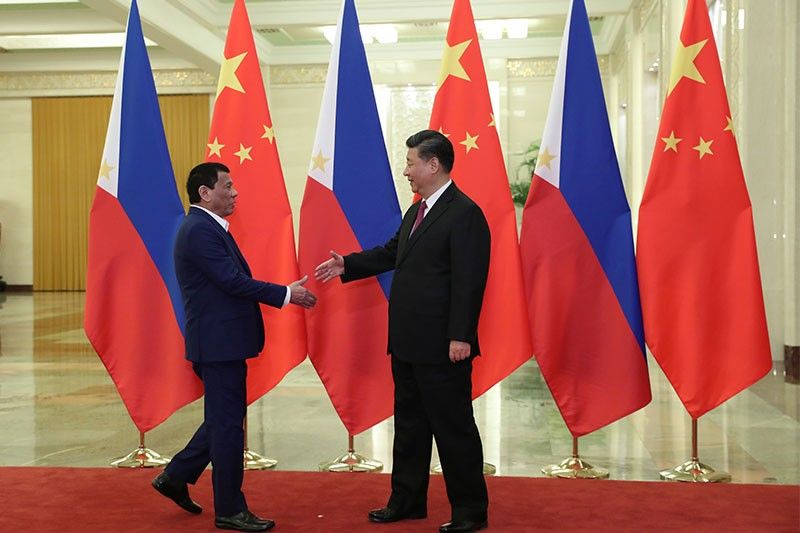Palace: Bilateral talks best way to address South China Sea row

MANILA, Philippines — Malacañang believes holding bilateral talks is still the best option to resolve the South China Sea row even if China's aggressive actions in disputed areas persist after the creation of a bilateral mechanism intended to settle the dispute.
Presidential spokesman Salvador Panelo said no other party wants to intervene in the the long-standing dispute.
"No other party is trying to resolve it right? Nobody wants to intervene. So perhaps, the two countries should just talk," Panelo said in a press briefing.
The Association of Southeast Asian Nations and China have been working towards a Code of Conduct in the South China Sea, a first draft of which is supposed to be completed this year.
"In the meantime, ASEAN and China continue to reaffirm the importance of maintaining and promoting peace, security, stability, safety and freedom of navigation and overflight," President Rodrigo Duterte said at the ASEAN-China Summit in Singapore in November 2018..
Palace: No other option except to talk
Panelo also argued that an armed conflict with China—critics of the government's policy on the maritime dispute have said the Philippines does not need to go to war to assert sovereignty in the West Philippine Sea—would be costly.
"There’s no other option except to talk because we do not want to engage in armed hostilities, whether small armed hostilities or expanded armed hostilities that will be costly to both sides, especially on our side because we do not have the capability," the presidential spokesman said.
Asked if he thinks the bilateral mechanism is the most effective way to address the dispute, Panelo replied: "Of course, yes. You don’t resolve the conflict by going to war or armed hostilities; it will not solve anything."
During the term of President Benigno Aquino III, the Philippines backed multilateral means to solve the South China Sea dispute and overlapping maritime claims, which also involves Malaysia, Brunei, Vietnam, and Taiwan.
In 2013, the Aquino administration filed a case before an international tribunal challenging the legality of China’s maritime claim, which covers about 90 percent of the South China Sea.
A Hague-based court ruled in favor of the Philippines in 2016 and declared that China's claim has no legal basis. China refused to recognize the ruling, calling it "illegal" and a "mere piece of paper."
The Philippines' position on the dispute changed when Duterte assumed office as he preferre to solve the dispute through bilateral negotiations. A bilateral consultative mechanism was formed in 2017 to tackle the maritime dispute.
Despite the creation of the mechanism, reports about China's aggressive acts in the South China Sea persisted, the latest being the harvesting of clams in Panatag (Scarborough) Shoal off Zambales and the swarming of Chinese ships around Philippine-occupied Pag-asa Island.
RELATED: Duterte raised West Philippine Sea 'irritants' with Xi, Palace says
Panelo previously said Duterte brought up the arbitral ruling during his meeting with Chinese President Xi Jinping in Beijing last week. He said the two leaders have agreed to solve the diplomatic "irritants" through bilateral talks.
Panelo, however, said a multilateral approach remains an option if the bilateral negotiations fail.
"For now, we will conduct bilateral (talks)...The two countries are the ones involved in the problem so let's go bilatral. Perhaps, if that fails, it can be an option among the claimants," Panelo said.
"Even if you insist on your side of your position, you can still argue and resolve mutually to both satisfaction, to both sides’ satisfaction on how to deal with that problem," he added.
Panelo said the presence of Chinese ships in disputed areas does not mean that the bilateral mechanism has failed.
"Considering that there has been a bilateral meeting between the two heads of the state, and they agreed that they can solve whatever irritants or challenges that confront both sides, then I’m confident that there will be response and there will be a basis for a dialogue or talk or a negotiation between the two
countries," he said.
"Let’s wait for an official stand on the matter on their part."
- Latest
- Trending






























